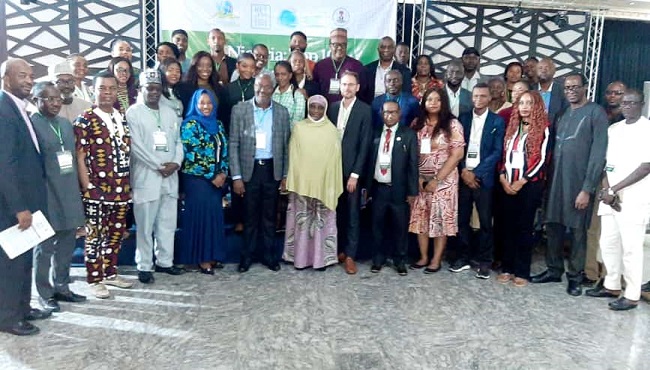A scheme aimed at helping to actualise Nigeria’s net-zero dream officially commenced in Abuja on Thursday, July 28, 2022.

Scheduled to span 10 months, the project, titled “Top 10 measures for Nigeria to Reach Net Zero”, will map some 10 key steps and decisions that, if taken in the coming years, will underpin a socio-economic transformation required to enable Nigeria to meet its 2060 net-zero objective.
Speaking during the project launch that engaged government ministries, departments and agencies (MDAs), think tanks, civil society organisations (CSOs), media practitioners and other relevant stakeholders, the Chairman of the Board of Trustees of the Society for Planet and Prosperity (SPP), Professor Chukwumerije Okereke, said that the top 10 measures to net-zero project is aimed at identifying key policy measures and activities within that will assist Nigerian government’s ambition to achieve net-zero growth emissions by 2060.
“While there are many policies and measures in key government documents, many feel that action on these measures are not happening as quickly as they could. At the same time, while the measures in these documents may be technically sound, many feel that their benefits are not sufficiently well communicated to the broader national audience,” said Okereke.
He added: “But time is ticking and what is undisputed is that the measures that will be implemented over the coming five years, will make a decisive difference. A small but targeted package of measures implemented across the key economic sectors will be able to put Nigeria on a deep decarbonisation pathway. Such measures will require investments from government and the private sector, with international climate finance leveraging those domestic investment and lowering investment costs and reducing risks. A failure to put Nigeria on the decarbonisation path in the near term will possibly foreclose the opportunity for net zero emission by 2060 altogether.”
The project, he stressed, is conceived to inform and stimulate the Nigerian discourse on the actions to take before 2025 that can make a decisive difference.
“The outputs are intended to support Nigerian stakeholders including policy makers, businesses, civil society organisations, and international development partners and crucially the general public, in moving this important issue out of the confines of expert debate and furthering societal debate about climate choices, regardless of people’s political perspective. The project presents the 10 key steps and decisions in a format that is accessible to a wider public through communication materials that can stimulate and inform a wider public debate,” Okereke emphasised.
Dr Iniobong Abiola-Awe, Director, Department of Climate Change in the Federal Ministry of Environment, in her remarks, stated that the global impact of climate change needs urgent attention of all stakeholders worldwide.
“This gathering is seen as an attempt to address the impact of global warming. Nigeria has ratified the Paris Agreement and President Muhammadu Buhari at COP26 on November 2021 announced Nigeria’s net-zero by 2060 commitment. The government is not relenting and is looking forward to partnerships like this towards addressing the climate change challenge. The ministry is looking forward to the outcome of this project.”
Dr Aisha Mahmood, Special Adviser to the Governor of the Central Bank of Nigeria (CBN) on Sustainable Banking, stated that government has been evolving and implementing the environmental, social, and governance (ESG) strategies through policy frameworks and regulations since 2012 throughout the financial system.
Citing the sustainable banking principle as an example, she stated that the strategy is being reviewed to align with national priorities such as the Climate Change Act and the Net Zero objective.
“The financial system is implementing the strategy in lending and investment decision so as to avoid lending to sectors that will negatively impact the environment,” she stated.
Germany-based Hans Velrome of Climate Advisers Network in a presentation titled “Assessing the development benefits of climate action” described development benefits as the added benefits gotten “when we act to stop climate change, above and beyond the benefit of a more stable climate”.
He added: “They are often referred to as co-benefits or as synergies. Some first order examples are cleaner air from reduced air pollution and less waste from reduced resource use. Some second order examples are improved security from reduced resource conflicts, or the jobs created by better access for SMEs to affordable energy.
“Decision makers look at the full development picture. So, whereas they acknowledge the need for climate change action, their aim is to deliver a cleaner, healthier, safer and more prosperous future. To many decision makers the development benefits of climate action are the principal benefits, the climate benefit is oft considered the co-benefit. Lesson: Put development at the heart of climate action.”
He listed Nigeria’s development challenges to include:
- Economic diversification, job creation and poverty reduction
- Security, social safeguards and gender equality
- Food security and public and environmental health
- Sustainable and affordable power and transport.
The Top 10 Measures for Nigeria to Reach Net Zero project is funded by the European Climate Foundation (ECF) and is being implemented by Society for Planet Prosperity.
